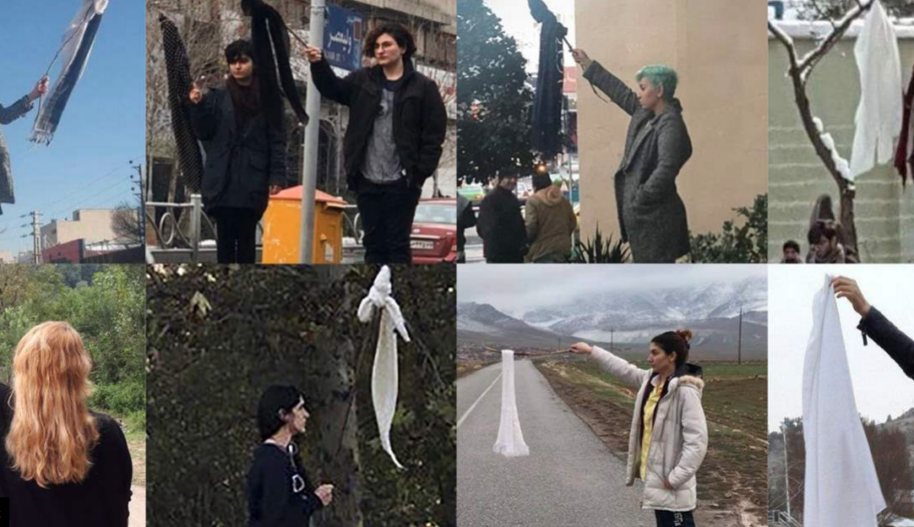A series of videos shared on social media in recent weeks have shed light on the daily harassment and violent attacks women in Iran face at the hands of morality police and pro-government vigilantes seeking to enforce the country’s forced hijab (veiling) laws, said Amnesty International.
The videos show members of the public or plain-clothes morality police aggressively confronting or attacking women for defying Iran’s degrading forced hijab laws, in the name of defending “public decency”. Perpetrators of such attacks appear to be getting bolder in their assaults in response to efforts by women to film the violence they face and share the videos on social media.
“The video footage that has emerged in recent weeks demonstrates the shocking levels of abuse women in Iran face on a daily basis from morality police or pro-government thugs simply for daring to defy the country’s abusive forced hijab laws,” said Philip Luther, Amnesty International’s Middle East and North Africa Research and Advocacy Director.
“Iran’s forced hijab laws are not only deeply degrading and discriminatory, they are also being used to justify violent assaults on women and girls in the streets.”
Women in Iran are routinely stopped in the street at random by morality police, who insult and threaten them, order them to pull their headscarves forward to hide strands of hair or give them tissues to wipe off their make-up. Women are often physically assaulted including by being slapped in the face, beaten with batons, handcuffed and bundled into police vans.
In one of the videos posted online recently, a woman films a confrontation that she says began after a pro-state vigilante persistently ordered her to wear her hijab properly. In the video the man hurls abusive insults at her and, when she objects, he turns around and sprays her in the face with what appears to be pepper spray.
In another video, a man is shown yelling, insulting and ordering a woman to put on her headscarf. The woman is heard screaming about his threat to fire a stun gun at her and the man responds: “I did not fire at you. I only showed it to you.”
In a third video posted online, a plain-clothes man standing next to a morality police van is seen aiming a gun at unarmed men and women who have intervened to stop the violent arrest of a woman who is not wearing a headscarf.
The person who filmed the video explains in a comment that they and other members of the public had to rescue the woman from the morality police, who had confiscated her car keys and were attempting to push her into their van.
Iranian women’s rights defenders have courageously filmed these incidents as part of the My Camera My Weapon campaign, which aims to raise awareness of the constant harassment and assault that women and girls face in Iran’s streets as a result of forced hijab laws.
The videos were posted online by prominent Iranian journalist and women’s rights activist Masih Alinejad, based in the USA, who has run a series of high-profile online campaigns against forced hijab. As well as My Camera My Weapon, these include: My Stealthy Freedom, a Facebook page where women in Iran are encouraged to post photos of themselves without headscarves, and White Wednesdays, a campaign which calls on women to protest forced hijab laws by wearing white headscarves every Wednesday.
The increased spotlight on the assaults on women defying laws on forced hijab has been met with a chilling smear campaign by state media against women’s rights defenders calling for the abolition of these abusive laws.
There are serious concerns that Iran’s authorities are fuelling these assaults in order to silence women at a crucial moment – just as they are gaining the courage to speak out publicly against forced hijab and amplifying their voices through social media.
“These brutal assaults targeting women and girls are a violation of their right to be protected from cruel, inhuman and degrading treatment under international law,” said Philip Luther.
“Millions of Iranian women are being denied the right to be treated with dignity and to go about their daily lives without fearing violence or harassment.”
Iran’s forced hijab laws are a blatant breach of the rights to freedom of expression and religion, and the right to privacy. Women and girls in Iran are not allowed to set foot outside their homes unless they cover their hair with a headscarf and cover up their arms and legs with loose clothing.
Under Iranian law, women and girls as young as nine years old who are seen in public without a headscarf can be punished with a prison sentence of between 10 days and two months, or a cash fine. In practice, Iran’s authorities have imposed forced hijab on girls as young as seven years old.
Over the past year, Iran’s authorities have stepped up their crackdown on women’s rights defenders peacefully protesting against forced hijab laws. The most shocking example is the case of prominent human rights lawyer Nasrin Sotoudeh, who was sentenced up to 34 years to 33 in prison and 148 lashes in part, for her opposition to forced hijab laws.
The charges on which Nasrin Sotoudeh was convicted include “inciting corruption and prostitution” and “openly committing a sinful act… by appearing in public without a hijab”. Some of the activities that the authorities have cited as “evidence” against her include: opposing forced hijab; removing her headscarf during prison visits; defending women who peacefully protested against forced hijab; giving media interviews about the violent arrest and detention of women
protesting against forced hijab; and placing flowers at the scene where a woman protester was violently arrested.
For more information please contact: Lucy Scholey, Amnesty International Canada (English): + 613-744-7667 ext. 236; lscholey@amnesty.ca













